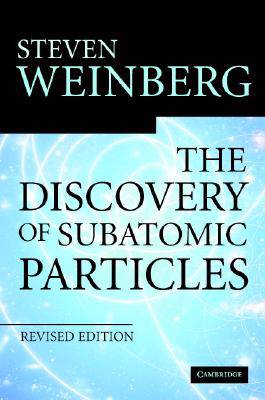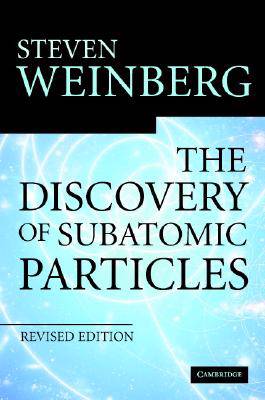
En raison d'une grêve chez bpost, votre commande pourrait être retardée. Vous avez besoin d’un livre rapidement ? Nos magasins vous accueillent à bras ouverts !
- Retrait gratuit dans votre magasin Club
- 7.000.000 titres dans notre catalogue
- Payer en toute sécurité
- Toujours un magasin près de chez vous
En raison de la grêve chez bpost, votre commande pourrait être retardée. Vous avez besoin d’un livre rapidement ? Nos magasins vous accueillent à bras ouverts !
- Retrait gratuit dans votre magasin Club
- 7.000.0000 titres dans notre catalogue
- Payer en toute sécurité
- Toujours un magasin près de chez vous
29,45 €
+ 58 points
Description
This commentary on the discovery of the atom's constituents provides an historical account of key events in the physics of the twentieth century that led to the discoveries of the electron, proton and neutron. Steven Weinberg introduces the fundamentals of classical physics that played crucial roles in these discoveries. Connections are shown throughout the book between the historic discoveries of subatomic particles and contemporary research at the frontiers of physics, including the most current discoveries of new elementary particles. Steven Weinberg was Higgins Professor of Physics at Harvard before moving to The University of Texas at Austin, where he founded its Theory Group. At Texas he holds the Josey Regental Chair of Science and is a member of the Physics and Astronomy Departments. His research has spanned a broad range of topics in quantum field theory, elementary particle physics, and cosmology, and has been honored with numerous awards, including the Nobel Prize in Physics, the National Medal of Science, the Heinemann Prize in Mathematical Physics, the Cresson Medal of the Franklin Institute, the Madison Medal of Princeton University, and the Oppenheimer Prize. In addition to the well-known treatise, Gravitation and Cosmololgy, he has written several books for general readers, including the prize-winning The First Three Minutes (now translated into 22 foreign languages), and most recently Dreams of a Final Theory (Pantheon Books, 1993). He has also written a textbook The Quantum Theory of Fields, Vol.I, Vol. II, and Vol. III (Cambridge).
Spécifications
Parties prenantes
- Auteur(s) :
- Editeur:
Contenu
- Nombre de pages :
- 222
- Langue:
- Anglais
Caractéristiques
- EAN:
- 9780521823517
- Date de parution :
- 01-09-03
- Format:
- Livre relié
- Format numérique:
- Genaaid
- Dimensions :
- 157 mm x 229 mm
- Poids :
- 521 g

Les avis
Nous publions uniquement les avis qui respectent les conditions requises. Consultez nos conditions pour les avis.






